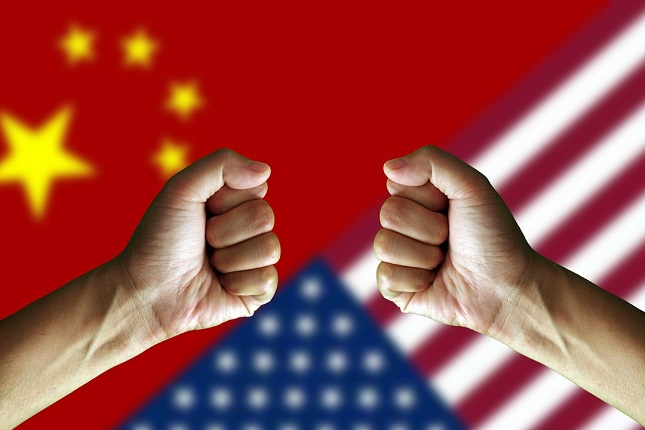Drawing widespread attention amid escalating China-US tensions and constant US crackdowns on Chinese companies, including a push to potentially delist hundreds of Chinese firms in what many call a "financial decoupling."
Shortly after the announcements flashed across trading screens just minutes apart, China's top stock regulator, the China Securities Regulatory Commission (CSRC), issued a statement, stressing that the companies' decisions were made out of their own commercial considerations and that it will maintain communication with relevant overseas regulatory agencies to jointly protect the legitimate rights and interests of companies and investors.
Chinese and US regulators have been in talks about audit rules covering US-listed Chinese firms.
Given the relatively small sizes of the ADS issues, the delistings will have a limited impact on the companies' operations, officials and experts said. However, the wave of announcements, coming as a growing number of Chinese firms are delisting from US markets, showed the further worsening conditions of US markets due to the US government's relentless crackdowns on Chinese companies, analysts noted on Friday.

A trader works at the New York Stock Exchange (NYSE) in New York, the United States, June 9, 2022. Photo: Xinhua
Wave of delisting plans
According to a statement from Chinese energy giant PetroChina Co Ltd issued on Friday, the company notified the NYSE during the day that it will apply for a voluntary delisting of its ADS. The company said it intends to file a form with the US Securities and Exchange Commission (SEC) around August 29 and complete the delisting within 10 days thereafter.
The company gave several reasons for the decision in the statement, including the fact that it is facing a "considerable administrative burden" for performing the disclosure of obligations to maintain the ADS listing in the US.
Four other Chinese companies made similar statements on Friday - China Life Insurance Co, China Petroleum & Chemical Corp, Aluminum Corp of China and Sinopec Shanghai Petrochemical Co.
The US government has constantly intensified its crackdown campaign against a wide range of Chinese companies, including a push to delist US-listed companies by changing audit rules.
Before the announcements on Friday, more than 20 Chinese companies listed in the US had sought listings in the Chinese mainland or Hong Kong via primary, secondary or dual primary listings. The number is likely to burgeon in the coming months as the SEC had put 159 Chinese concept stock companies on its delisting watch list by the end of July.
The CSRC statement said that it supports companies' decisions made according to their own situations and in line with regulations of the overseas destinations where they are listed.
It also noted that since that those companies' ADS issues account for a small percentage of their overall shares, the delisting plan would not affect those companies' moves to use both home and overseas capital markets for fundraising.
PetroChina also said in its statement that its issued and outstanding ADS represented approximately 3.93 percent of the total H Shares and approximately 0.45 percent of the total share capital of the company as of August 9.
Song Guoyou, deputy director of the Center for American Studies at Fudan University, said that the overall impact on the Chinese companies would be limited, since they had not encountered business setbacks or sudden political shocks. Instead, the entire context is clear as bilateral audit negotiations between the two sides persisted for years, he said.
The delistings announced on the same day, on the other hand, could be a blow to the influence of the US' financial sector across the world, experts noted.

China US. Photo: VCG
Decaying US market
"As the US chooses to reject instead of attract more qualified global companies to list in its markets, its market size will shrink, which goes against its wish to maintain top position among global capital markets," Li Daxiao, chief economist at Shenzhen-based Yingda Securities, told the Global Times on Friday.
Gao Lingyun, an expert at the Chinese Academy of Social Sciences (CASS) in Beijing, said that in the eyes of global investors, the US is not a purely market-oriented financial market any more, noting that not only Chinese firms but other foreign firms may have second thoughts when considering whether to list in the US.
In addition, many investors in the US and internationally will lose a valid path to invest in high-potential Chinese firms, Gao said.
In what analysts call a politically charged move, the US has taken gradual steps to intensify requirements for Chinese listed companies to disclose information. For example, in mid-2021, the SEC announced it would not allow Chinese companies to raise money in the US unless they fully explained their legal structures and disclosed the risk of their business being interfered with by the Chinese government, a report from Reuters noted.
Xi Junyang, a professor at the Shanghai University of Finance and Economics, told the Global Times that it's almost certain that Chinese companies listed in the US will withdraw to avoid risks, as the US market environment is continuing to deteriorate.
"On a smaller scale, the SEC is setting increasingly more hurdles like audit rules or information disclosures for Chinese companies. In a larger sense, the two countries' relations have become increasingly uncertain and it's very likely that listed companies will experience unfair treatment in the US amid such political tensions," Li said.
Gao predicted that more Chinese companies may follow suit and delist from the US markets, especially if they're large state-owned firms.
"Rather than exposing themselves to constantly rising political risks in the US, it may be a better choice to delist from the US and rearrange their financing approaches, such as going public in Hong Kong, as many suggested, " Gao said.
Apart from the "financial decoupling" effort, the US has taken a series of provocative actions against China in recent days in many ways, including signing a chip subsidy act that's intended to cripple China's chip industry.
Experts noted that if the US government continues to push for a "financial decoupling" between China and the US, it would lead to huge losses for both markets. There are about 250 Chinese companies listed in the US, whether directly or by using ADS.
Analysts called on the two countries to strengthen communication to address the audit dispute. The US in particularly should meet China half way to reach consensus on the regulatory matter, they added.
"US regulators should think long-term, instead of taking a shorted-sighted approach toward China," Li said.
Main photo: Photo taken on Nov 4, 2020 shows the New York Stock Exchange in New York, the United States. Photo: Xinhua.
Source: The Global Times.































